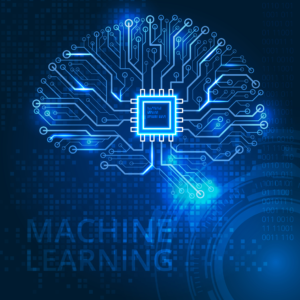What does an AI Security Consultant do?

Also read – FAQ on AI Cybersecurity
Q: What is an AI security consultant?
A: An AI security consultant specializes in securing AI systems and leveraging AI technologies to enhance cybersecurity. They combine expertise in artificial intelligence, machine learning, and cybersecurity to protect AI applications and improve overall security.
Q: What are the primary responsibilities of a security consultant?
A: The primary responsibilities and activities of an AI security consultant include:
Q: What does risk assessment and analysis entail for a security consultant?
A: It involves evaluating the security risks associated with AI systems and applications, conducting threat modeling, and performing vulnerability assessments to identify potential weaknesses.
Q: How does an AI CyberSecurity consultant ensure the design and implementation of secure AI systems?
A: They ensure AI models and algorithms are designed with security in mind, implement secure coding practices, and establish robust authentication and authorization mechanisms.
Q: What are AI-driven cybersecurity solutions, and how does an AI security consultant use them?
A: AI-driven cybersecurity solutions involve developing and deploying AI-based systems to detect and mitigate cyber threats, using machine learning techniques to analyze vast amounts of data for identifying anomalies and patterns indicative of security breaches.
Q: What is adversarial machine learning defense?
A: Adversarial machine learning defense involves developing strategies to protect AI models from adversarial attacks (e.g., input manipulation that causes models to make incorrect predictions) and implementing techniques like adversarial training to improve model robustness.
Q: How does an AI security consultant handle data security and privacy?
A: They ensure the data used for training AI models is secure and complies with data privacy regulations, and implement data anonymization, encryption, and other data protection measures.
Q: What role does an AI consultant play in security monitoring and incident response?
A: They use AI and machine learning to enhance monitoring systems for real-time detection of cyber threats and develop automated response mechanisms to quickly contain and mitigate security incidents.
Q: What are the compliance and ethical considerations for an AI security consultant?
A: They ensure AI systems adhere to relevant laws, regulations, and ethical guidelines concerning security and privacy, and address ethical issues related to AI, such as bias, transparency, and accountability.
Q: What is involved in security audits and penetration testing for AI systems?
A: This involves conducting regular security audits and penetration testing of AI systems to identify and address vulnerabilities, and assessing the security posture of AI infrastructure and applications.
Q: How does an AI security consultant contribute to training and awareness?
A: They provide training to organizations on securing AI systems and using AI for cybersecurity, and raise awareness about potential security risks associated with AI and how to mitigate them.
Q: What collaboration is required by an AI security consultant?
A: They work with data scientists, engineers, and IT professionals to integrate security measures into AI projects, and collaborate with legal and compliance teams to ensure regulatory adherence.
Q: What research and development activities does an AI consultant engage in?
A: They stay updated on the latest advancements in AI security and cybersecurity threats, and engage in research to develop new methods for securing AI systems and utilizing AI for cybersecurity.
Q: What consulting and advisory services does an AI consultant offer?
A: They provide strategic advice to organizations on enhancing their cybersecurity posture using AI technologies and offer guidance on best practices for securing AI systems throughout their lifecycle.
Q: In summary, what is the role of an AI CyberSecurity consultant?
A: An AI security consultant plays a critical role in protecting AI systems from cyber threats and leveraging AI to improve overall cybersecurity. They combine knowledge of AI and cybersecurity to ensure that AI applications are both secure and effective.